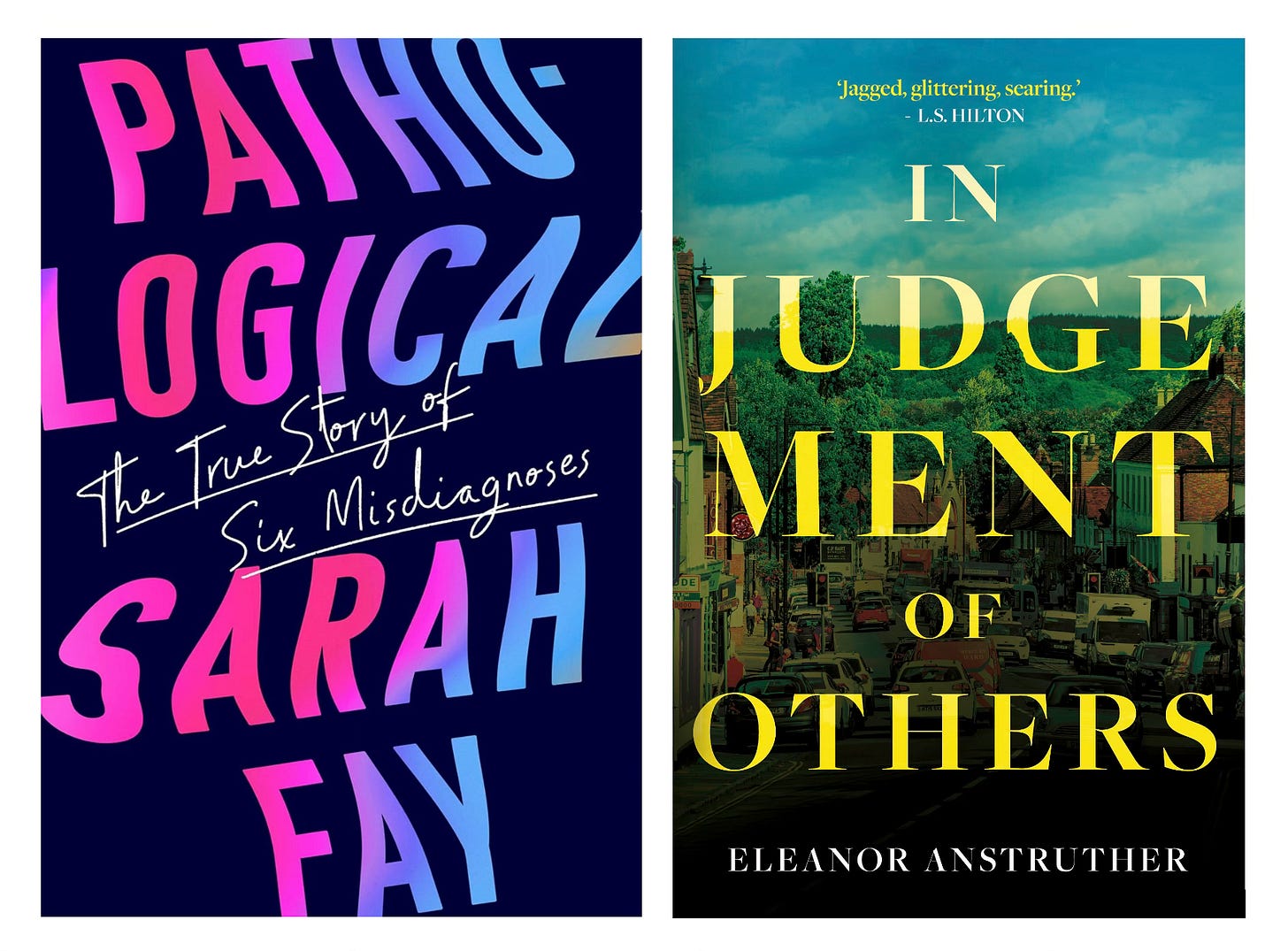Well, that was a whirlwind, as it should be when you’ve gone to the heartache and sweat of getting a book up on its feet; a mad packed week of singing my own praises and blowing my own trumpet in the face of the the very British rule to sit down and shut up. We had a ball, friends turned up and hugged me, the room was packed with cheer and joy, I stood on a lovely set of library steps which wobbled, and gave the speech I’d written hurriedly on my phone the week before while queuing for coffee at Gails, thinking I’d work on it but finding it said already exactly what I wanted it to say:
“Much of what I write is born of outrage, and this novel was no different; born of the outrage I felt on behalf of my impossible friend as I watched her treatment at the hands of a society which in the same breath as shaming her behaviour, applauded disordered eating, alcohol dependence & the prevailing acts of narcissism in others. I’ve come to understand that developmental trauma, that devastating injury which can be inflicted singularly or in myriad opaque ways over broad swathes of time, lies at the heart of all diagnostic names we have for states of overwhelming illness, from psychosis to addiction, and with this common ground should come common treatment & approach. The point which this novel explores is that we don’t treat them the same. A psychotic episode is hospitalised while the equally damaging acts of a borderline personality disorder are celebrated; in short, no one sections narcissists. Because this novel needed a few laughs, the story unfolds around an amateur dramatic performance of Blithe Spirit. I couldn’t resist the complexity of putting the cast on an actual stage and thank you to the Noel Coward estate for letting me reproduce the play at will. Thanks also to my impossible friend for letting me steal liberally from her life, thank you to Beth, and the whole team at Troubador Publishing who’ve done such a stellar job, and to Julia, James and Sofia at Riot Communications for raising us up and making us visible. To Jonny de Falbe for hosting us in this wonderful, iconic bookshop, and to all of you for coming and supporting me. This book was turned down by every publisher we sent it to, and I’m hugely proud that I refused to take no for an answer.”
These events of celebration and togetherness are important in the life of us, and the life of our books. They are a stand up and say it moment, they proclaim clearly that books matter, you matter, and that with one voice we are saying what needs to be said, which in this case was the equal treatment of illness by society and by the medical establishment, that the woman asleep in that doorway is no different to the woman on her fourth glass of Chardonnay, that if we’re going to section those in bipolar psychosis, so should we, narcissists.
And now it’s over, the book is out, I’ve done my singing and dancing and all of you have done your wonderful singing and dancing on my book’s behalf. On to the next, someone else in need of attention, someone else’s work in need of praise. I’ve just finished reading the remarkable memoir, Pathological: The True Story of Six Misdiagnoses by
. We’ll be meeting in New York in early March to discuss how are books collide; she from the inside, mine from a 30,000 foot view. If you run a bookshop in that beautiful city and would like us to come along, please get in touch.Meanwhle, I’ve gone back to school with the brilliant Thi Wurd. Every Sunday we meet online to explore each other’s work, learn to critique and discover how the discussion of someone else’s writing leads to an improvement of our own. I highly recommend looking out for their announcement of future courses. And I’m working on something new, which is one part terrifying, three parts exhilarating and all parts obsessing me beyond measure.
Onward,
Eleanor
ps, On 16th Feb 2pm GMT I’ll be teaching a class exploring your use of Substack, using my interview series 8Q as a jumping off point. Tickets available now.
11th Feb
Is it a crazy idea to keep a diary here, as I did when I first began? I don’t think so, it’s an experiment as so much of writing is, and this an experiment in paywalling a record I will keep of these day to day thoughts, like the diary I kept throughout the years of travel, the many notebooks that now stack on my shelves.











Huzzah beautiful. May this treasure take flight and travel far and wide. I also applaud your brave marketing skills and believing in yourself as much as we do. You are a trailblazer, an inspiration, a force. ❤️
Hi Eleanor, I'm new to your Substack. Congratulations on your new book! I'm sure that launching it into the world must feel wonderful. I enjoyed your interview with Kimberley Warner recently. It's clear that you take a compassionate and trauma-informed view of mental health issues - thank you.
I am a mental health peer worker, supporting others with serious diagnoses on their recovery journeys. So I appreciate the efforts of everyone working in this space to improve community understanding and reduce stigma.
I'm a bit confused about the comment you made at the end of your book launch speech, however, where you suggest that different diagnoses should be treated the same way. Without further conversation, I'm not exactly sure what you mean here, but thought it is worth saying that an important aspect of mental health support and recovery is NOT treating people according to their diagnoses, but rather, by their personal symptoms and needs in the moment.
Living well with mental health conditions is possible when people receive community-based psychosocial support -- including peer support. Here in Australia, a person is sectioned only as a very last resort, when they are at significant risk of causing serious harm to themselves or someone else. Their diagnosis is irrelevant. (Just as treatment of physical illnesses is tailored -- no two people with 'cancer' are treated 'the same'.) Would love to hear more about your experience and where your are coming from. Warmly, Harriet